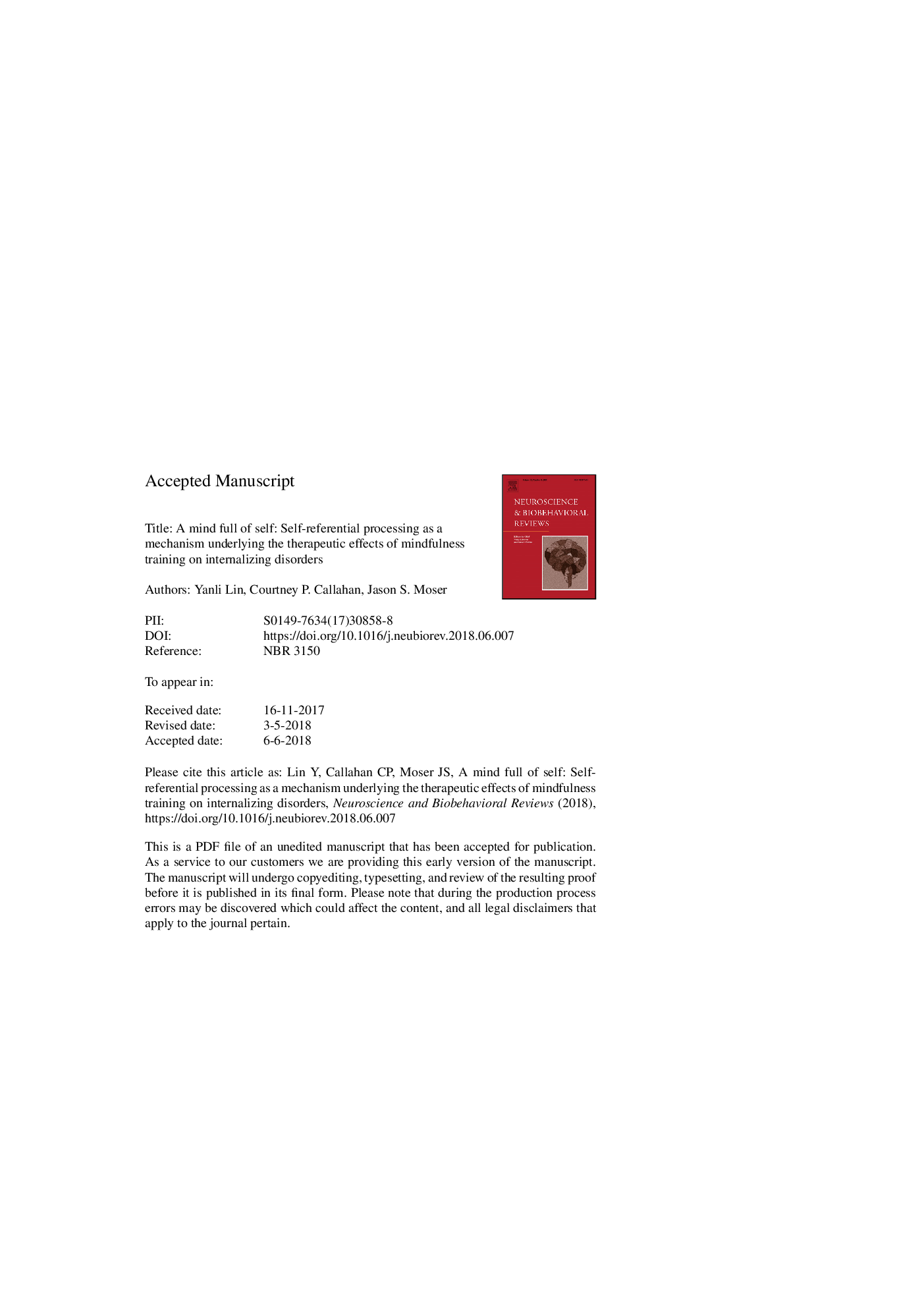| Article ID | Journal | Published Year | Pages | File Type |
|---|---|---|---|---|
| 7301590 | Neuroscience & Biobehavioral Reviews | 2018 | 63 Pages |
Abstract
The aim of the current review is to advance the hypothesis that change in self-referential processing is a key but under-examined mechanism through which mindfulness training confers its therapeutic benefits for individuals with internalizing disorders. Consequently, we integrated neuroscientific studies on aberrant self-referential processing in internalizing disorders with contemplative science scholarship examining the effects of mindfulness training on the self-referential system. Reviewing these literatures yielded four major conclusions: (1) internalizing disorders can be characterized by excessive self-referential processing and emotion dysregulation; (2) mindfulness training has moderate effects on reducing internalizing symptoms; (3) mindfulness training promotes the shifting from narrative self-focus to present-centered experiential awareness; (4) such mindfulness-induced changes in self-reference is accompanied by reduced activation in overactive self-referential brain regions that have been implicated in internalizing disorders. Clinical and research implications related to delineating the role of self-referential processing in producing the therapeutic effects of mindfulness training are discussed.
Related Topics
Life Sciences
Neuroscience
Behavioral Neuroscience
Authors
Yanli Lin, Courtney P. Callahan, Jason S. Moser,
